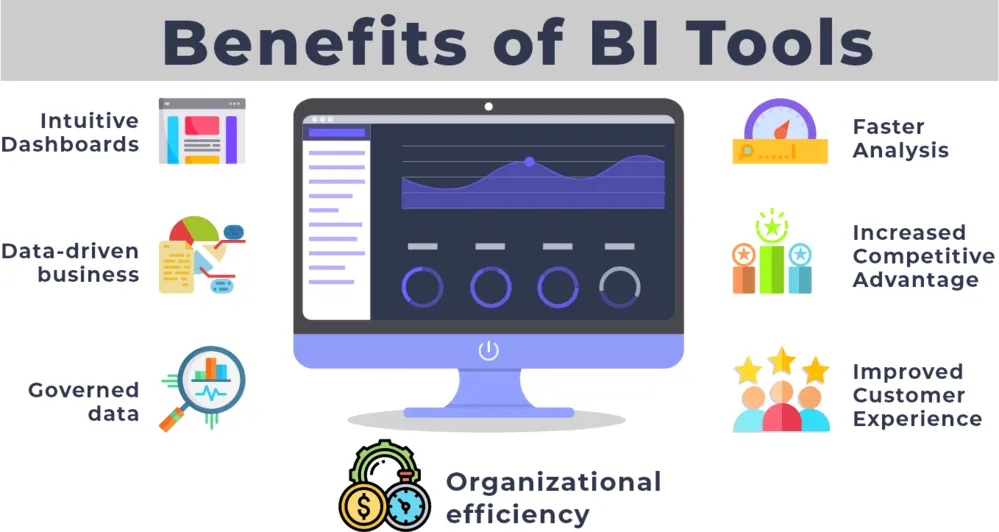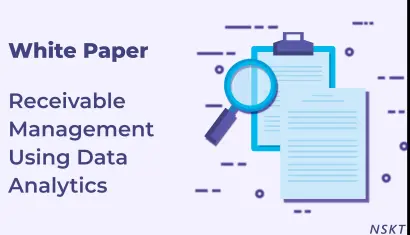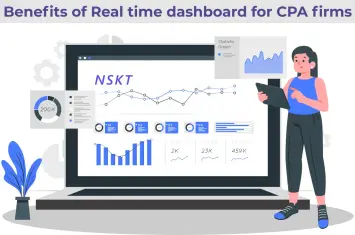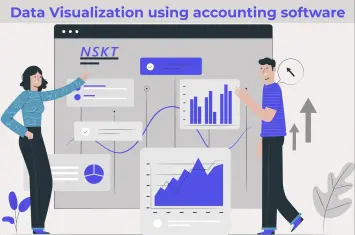Table of Contents
This article aims at raising eyebrows for the new generation of reporting tools that will soon be occupying a major portion of the market. Remember the simpler times when older ERP software’s were creating all the buzz for their renowned capabilities? Or even further back when Tally was named the paragon for the accounting world?
We certainly have come a long way, and so has technology. Complex Business Intelligence tools like SAP BI, Microsoft Power BI, Tableau etc. have come into play and are being recognized by the top organizations. The problem lies with the SME sector where any technological change faces high resistance. This is particularly a problem with the Indian SME industry. Let us discuss BI in detail and the possible solutions to the problem mentioned.
WHAT IS BUSINESS INTELLIGENCE?
Assuming that everyone reading is not familiar with the term, we will try to explain it in an elementary fashion. Business intelligence is the collateral use of data generated by the enterprise and the tools with the ability to modify as well as use that data in a way that the following needs are fulfilled, namely: -
- Analysis of current situation of the organization’s business activities
- Devising possible plans of action as per the situational analysis
- AI assisted decision making through judgement of complex, multi-variable trends
Other interesting yet less complex features of a BI tool include visualization of data and creation of dashboards for generating multiple reports.
WHY BI IS ADVISABLE?
Effective reporting is the essence of managerial decision making. We’ve been learning the phrase by heart since senior school years but only a few have witnessed empirical evidence. To quote a real-life example, last month we had the opportunity to engage in a risk management project for a new service enterprise. They had every IT tool in place except one which was a CRM System. Upon thorough assessment of the impact of lacking a CRM System it was found that the company was losing a huge number of opportunities as well as revenue.
Considering it was an SME, this was fairly steep. Our intent with this example is to establish that failure in reporting of conversions/non-conversions etc. to the top management resulted in hefty losses to the stakeholders.
Business Intelligence software’s integrates all systems in an entity and employs tools ranging from data warehousing to complex analytics for effective as well as efficient decision making. The other key merits include real-time visualization with integrated scenario making tools too.
Why do SMEs in India have trouble coping with technological change?
To assume that the lack of adoption of technological means by SMEs is ingrained due to orthodox business mindset would be wrong. The roots of such resistance go deeper and owe their existence to multiple factors.
- Culture: When it comes to SMEs, there is no argument that the foundation of their organization lies in the common belief system & commitment that stakeholders have. This deep-seated value system, at times, creates a blind spot for the top management towards technological change. A paradox is created. The decision makers believe that their own due process without advancement would eventually come out on top and business would flourish regardless. However, ignoring such change actually puts them in the rear seat of the industrial carriage.
- Fear of Coping: There are examples in the service industry which clearly indicate that adoption of new means of technological tools is hindered by the top management’s fear of coping with the industry that has already mastered the art of such tools. The thought of this ‘catching up’ process prevents the management from acting on the need of technology.
- Monetary Issues: The most important and widely spread issue is the lack of monetary capacity to adopt such a system. It is understandable that the lower boundary of the SME sector lacks the financial resources to invest in such a change. However, there are also cases where the fund is available but there is no cost-benefit study to assess the pros and cons of such an investment. Here, the thought of monetary outflow without research, causes SMEs to lose opportunity cost.
Solving the Indian SME issue and integrating BI tools
It is the duty of business consultants/advisors to assist SMEs in India in understanding the value of BI systems and how they place the organization on a competitive advantage. These enterprises need to reassess their need to expand while charting out the tools they will require parallelly. Business Intelligence tools should form a key part of the technological advancement of the SME sector. Here are some of the ways SMEs and use BI tools to their advantage:-
- Team Empowerment – While using BI, the KRAs are emphasized on a lot more since there is clear accountability through efficient reporting. The team members in a small entity, all become key decision makers thereby driving the morale high up.
- Time efficiency – We know that sudden business environment changes are the toughest to cope for SMEs. Through BI tools’ ability to analyze trends and create scenarios, the decision-making process for the KMPs is shortened, thereby increasing efficiency to a whole new level.
- Non-Monotonous – BI tools get rid of the repetitive manual tasks like data entry which are prone to human error. This helps the SMEs to focus manpower on skillful tasks rather than monotonous tasks that consume time and human resources.
- Cost cutting – The management, with the help of BI, can identify the areas that are concentrating financial resources and compare them with the results of the same. This assessment would enhance the management’s ability to ascertain where and if cost cutting is to be undertaken.
There can be countless scenarios for every business where BI tool can provide insight. It must be noted that a BI tool does not necessarily change the way an organization functions but rather adopts the current system and increases its output exponentially. It is always recommended to SMEs to adopt a BI tool that is simple to learn and understand. A tool that can fit well within the financial as well as operational boundaries of the organization is the one to go for. Neglecting this technological development in reporting is however a grave mistake that must not be made if survival is not the only goal of the organization.
NSKT Global provides best performance dashboards using data analytics and business intelligence across the globe including UAE and USA.







